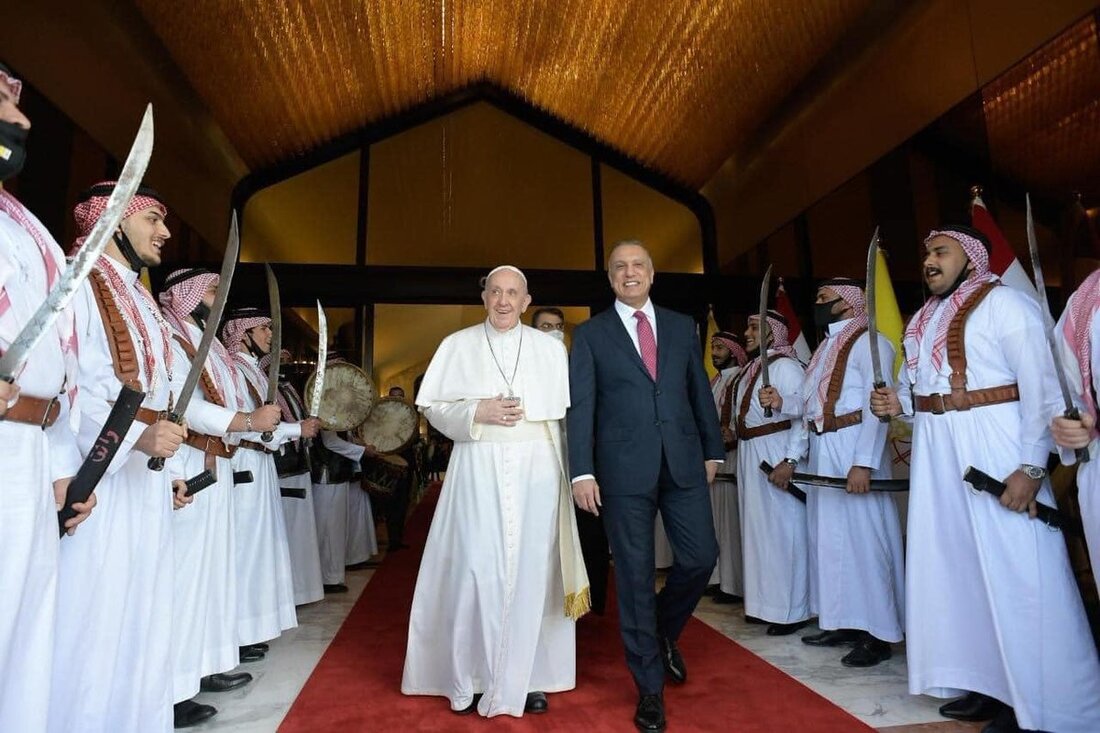|
By Benjamin Noel Culture Columnist Last week marked a historic event for the Catholic Church, and Chrisitianity as a whole, as Pope Francis made an unprecedented visit to Iraq. This fist papal visit to Iraq was groundbreaking not only for the greater Church, but more so for the Iraqi Christian community. Their persecution by the Islamic State since 2003 had made practicing their faith an impossibility until the recent fall of ISIS. In Iraq, the Pope celebrated mass in the Chaldean rite, the major Church in Iraq, met with Muslim leaders and officials and talked of unity. The importance of this trip is twofold, lying in the land’s Biblical importance, as the land of Abraham, and also the reflection on modern day persecution and conflict that has dwindled the Iraqi Christian population. While previous papal visits to Iraq had been in the talks before when Pope John Paul II had to pull out due to mounting tensions in 2000, Pope Francis had planned this voyage over one year ago, and was determined to not let anything get between him and his mission. The effects of the trip had manifested even before the March visit, as just last December, the majority Muslim country declared Christmas a national holiday (CruxNow). The trip is part of the Vatican's efforts to create unity between the Church and the Muslim world (Associated Press). While the noble intentions behind the papal voyage were clear, so were the concerns about the potential for this to turn into a superspreader event. Cases had surged as of late in Iraq, and with their not-so robust healthcare system, the COVID-19 concerns were very real. And just days before the visit, the papal point man in Iraq had come down with a mild case of the virus, and self-quarantined while the rest of the nunciature was cleaned pending the pope’s presence. Even this close call did not stop Pope Francis, who along with his Vatican envoy of 70 had all been vaccinated. Since the event, while it may be too early to tell, there has not been a rise in cases, nor has any member of the Vatican convoy tested positive. So far, the only waves caused by this visit have been the emboldenment of Iraqi Christians, and a vision of a more peaceful and unified future amongst the People of the Book. As he spoke amongst remains of destroyed churches, the Pope called for Iraqi Muslims and Christians to unite as brothers. Since the 2003 US invasion of Iraq, and the resulting war with ISIS, the Iraqi Christian population fell from 1.5 million to under 250,000. Consoling the women and girls who had been sold by ISIS as property, Pope Francis prayed that they may heal from their hurts and continue to give life to the country. He reflected on the founding of civilization from this region, then Mesopotamia, and the trade and intellectual center of Baghdad. The Pope's message was a simple one, together, as friends we grow and prosper. During this trip, Pope Francis rode around in an open pope-mobile, without bulletproof glass, bringing his presence that much closer to the people. While speaking in Mosul, a former IS stronghold, the pope made calls for fraternity, “You are all brothers.” He celebrated mass in the Chaldean rite, based in the ancient Assyrian rite, showing that even in their minute differences, all churches are one. In both his actions and his words, the pope sends a message for unity amongst the people who for so long have known nothing but conflict. Image courtesy of Google Images.
0 Comments
Leave a Reply. |
STAFFMadison Sciba '24, Archives
October 2023
Categories |


 RSS Feed
RSS Feed